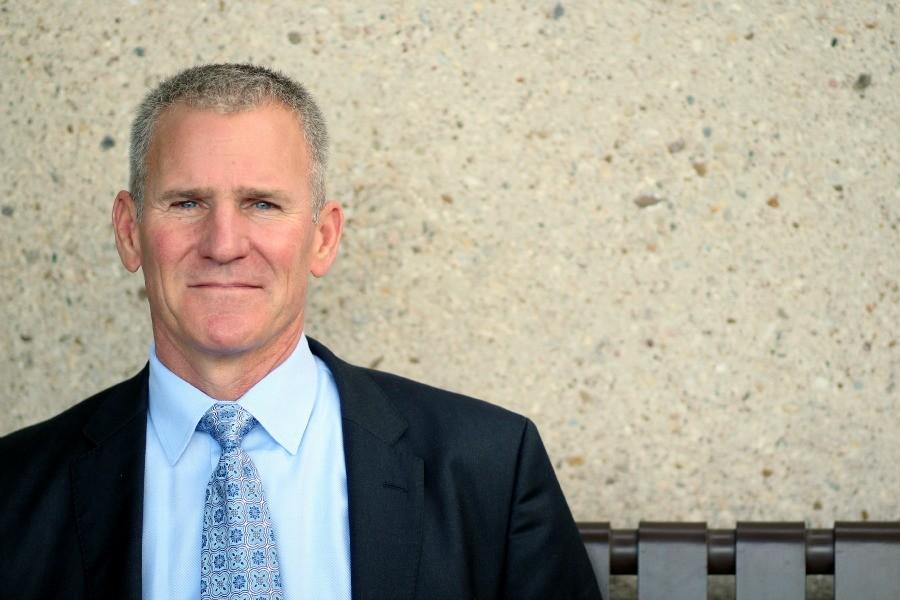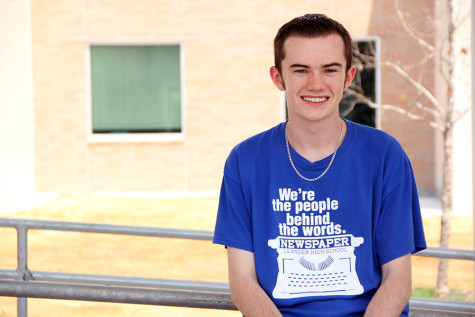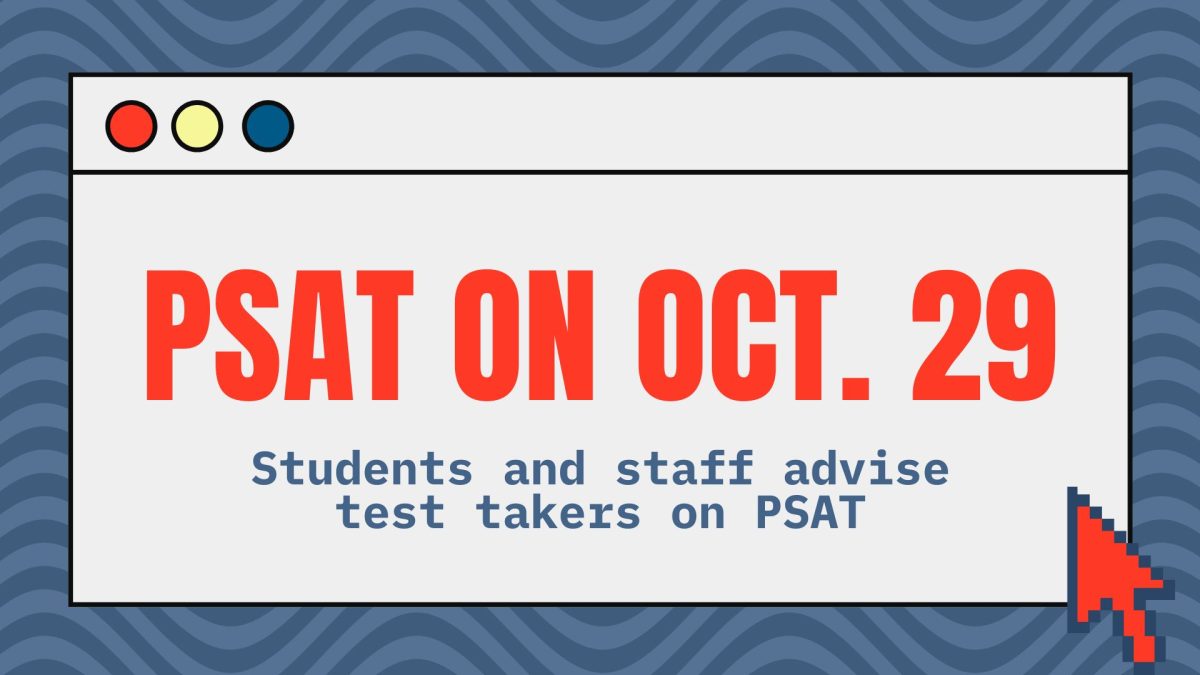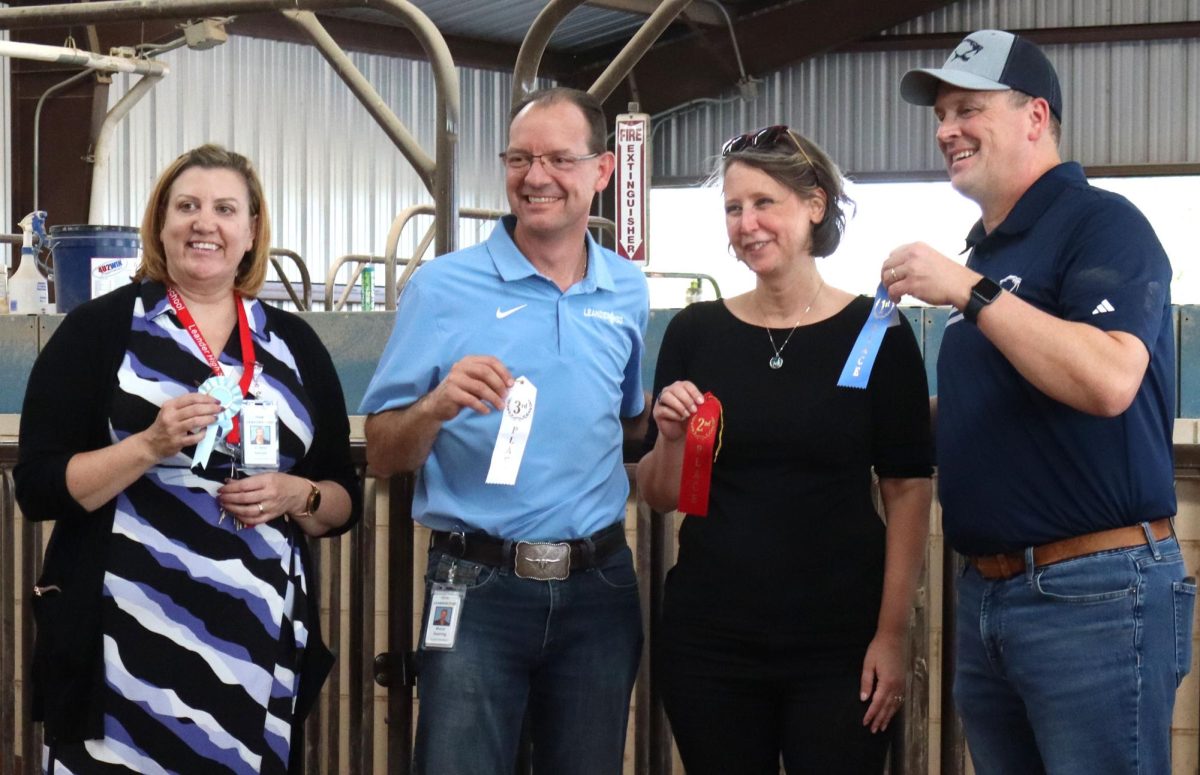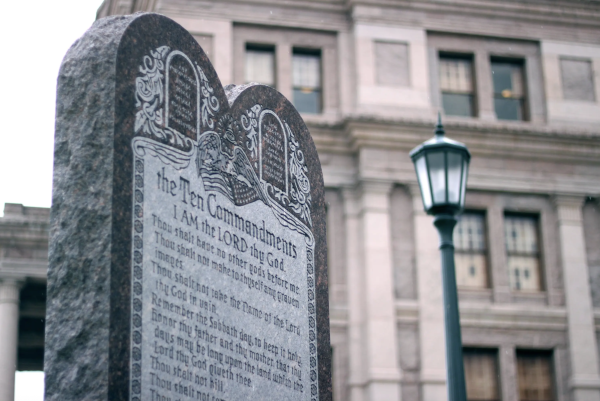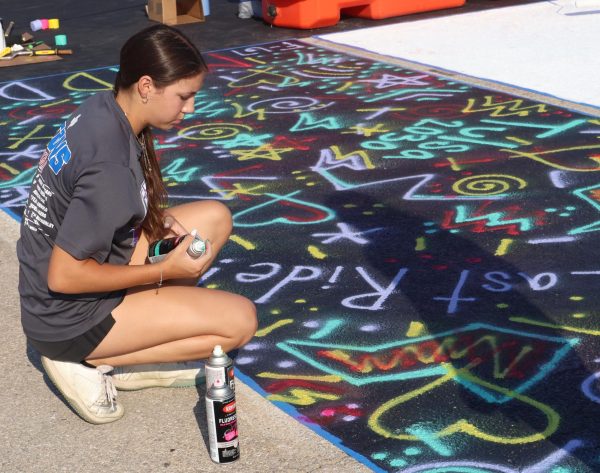Changing lives around the world
President and CEO of the Austin YMCA James Finck. Finck began his job as CEO more than 30 years ago.
November 22, 2015
Traveling and changing. Traveling from San Diego to Boston on a bicycle. Traveling to the furthest regions of the world. Traveling to change the lives of the future. To give the opportunities to anyone. To learn from others how to value life. To learn who one is supposed to be.
President and CEO for the YMCA of Austin James Finck has worked for the the organization for more than 30 years. He has been involved in the Youth and Government program, as well as other programs his entire career. He went to San Jose State University, and it was after going to college that changed his whole life.
“I don’t know if I could ever get another job,” Finck said. “I went to school, and I majored in recreation establishment and public policy in California at San Jose State, and my dream job was to be a superintendent at a park and recreation department, some place in California.
“At that time there were no jobs that had park and recreation in California,” Finck said. “So, I did the next logical thing, and took a bicycle trip across the country from San Diego to Boston, and then when I was done I got flat broke, and I was looking for a job and luckily that happened to be the YMCA and I’ve been with them ever since.”
After he was hired by the YMCA, Finck worked as an aquatics director and helped children learn how to swim, and help keep the water a safe environment for everyone.
“I have no idea [how I got the CEO job],” Finck said. “It wasn’t my dream in the Y to say I want to be the CEO of the YMCA. I started off and I was a really really good aquatics director. I loved being in that environment. I loved teaching kids to swim. I loved keeping people safe around the water, but then there was always something more to be done in the Y, and I had that opportunity to wear different hats.
“I think that was what shaped my decision to be the CEO was mostly because I’ve had a bad CEO in my career, and then I started understanding how important that role was working at the top to give people opportunities,” Finck said “And to foster that growth, and take care of them so we can do more meaningful work. Then I think that when you do your job really well, then that next bigger job tends to come find you – you don’t find it – and I always looked at the job that I had really well, and some great mentors saw something and said, ‘You need to be a CEO. You need to be one of our leaders.’ Which came as a shock.”
Finck, after being hired, gained opportunities to experience many different environments, including Austin. It was then that he was exposed to international travel.
“I started my Y career in Bakersfield, California,” Finck said. “My first CEO job in the Y was in Maui, and then I went back to California to work in Redding, and I got my dream job as the President and CEO of the Austin YMCA eight years ago, in 2008.”
“I think Austin’s been one of my favorite places to relocate to, but I think international travel has always been my favorite,” Finck said. “I have had some great opportunities in my Y career to take young adults to places like Thailand and do learning service projects in an orphanage that saved kids from the sex slave industry. When you get people that type of opportunity, and they see and get to help it changes their lives forever.”
His love for helping people and volunteering had begun early on when his parents pushed him to volunteer to help mentally disabled adults.
“It was forced upon me by my parents,” Finck said. “I wouldn’t say it was something that I woke up at an early age and said, ‘Wow, let me go volunteer’, especially when I was around 15 and 16 years old, when I wanted go out and play with my buddies more than I wanted to go with my dad on a Saturday, and work with mentally disabled adults.”
“But those are the things that, luckily, it was strongly encouraged that I do, but when you put yourself in those situations I think that starts to form who you want to be, and I think we always have to ask ourselves that question no matter what age we’re at, you guys are here and so who do you want to be,” Finck said. “And we will all do different things, but if you want to be a person of character, you have to decide what that means for you, and what those things are that you’re going to do. Now, if it’s all about getting the best job, and getting the best paycheck, and getting the most toys that is never going to create a character-centered individual. So, those things are very important, and so the more you get to do them, the more you find out that’s what shaped me. That’s what fulfills me. That’s where I want to be. So, I think it’s always a process.”
It was in this character building process that led him to international travel, and taking part in helping orphanages in Thailand.
“I got to do what they call an international leadership opportunity, where they take CEOs and Chief Volunteer Officers on international trips, and the idea is that you would form relationships in other countries and work together,” Finck said. “So, you build bridges, and so when I went on that trip and we did go and see this orphanage that was ran by the Bancock YMCA called the Piot Children’s Center, and you see these kids at this orphanage that grow their own food, they do their own cooking, they take care of everything, go to school and they’re happy, and it’s such a contrast from the U.S., in some respects that if we don’t get all of these things, that’s what we constitute as getting happy? And then when we took the high school kids over there and they got to work with these kids, and we interviewed them, they said ‘the things that were really important to me, have shifted.’ It’s about helping. It’s about being part of something greater than yourselves, and that’s when I knew that we were transforming lives, and I think Youth and Government does the same thing.”
With this experience it also changed Finck into the man he is today.
“All of those experiences in life, the fact of the matter is, and I remember my dad telling me this when I was [younger] is that for you to find real happiness in life, you’re always going to have to figure out how to help others, because that’s what brings you that happiness,” Finck said. “Whether it’s a family member, or a friend, people you don’t know, the cause that you get behind, something that you view as more important than yourself, because it’s important for others, is that magic sauce in life.”
These experiences and with his father’s words, made Finck realize that his favorite part about working for the YMCA is the people.
“The people [are my favorite part about working here],” Finck said. “The Y is a pretty complex organization in which to run, we have here alone 1,200 employees, we have big budgets, we have insurance issues to deal with, we have regulatory issues that we have to take care of, we have licensing issues, we try to solve critical social issues, and we have to do that with a lot of partnerships and collaborations, and they can get a little messy sometimes, but really at the end of the day it’s what we do for people, and I feel blessed being in my position, and have some impact on those areas.”


